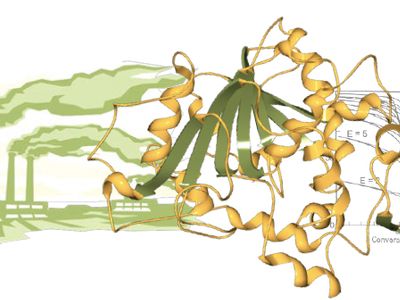Course contents:
The course gives an introduction and an overview of the research field Biocatalysis. It provides good theoretical knowledge about the environmentally sustainable technical usage of enzymes for the production of high-value chemicals. The course provides an overview of the various enzyme classes with the focus on their reaction mechanisms and it describes important experimental techniques such as using enzymes in non-aqueous media and methods to optimize the stereochemical outcome. Several industrial processes are discussed as examples. The course also covers an introduction to general enzyme kinetics and an overview of current strategies for design and modification of enzymes for catalysis applications.
Learning outcomes: After passing the course, students should be able to:
· design environmentally sustainable enzymatic processes for industrial production of chemical products.
• distinguish reaction mechanisms of enzymes from the different main classes and be able to decide which chemical reactions that enzymes from a certain class can catalyze.
• explain and exemplify different enzyme-catalyzed processes for stereoselective chemical production. For example, kinetic resolution, deracemization, and stereoselective synthesis, and also be able to suggest strategies for optimization.
• know advantages and disadvantages of different reaction media for enzymatic reactions and be able to decide suitable reaction conditions in each case.
• be aware of the Swedish and foreign industry which uses enzymatic processes and be able to exemplify products and types of enzymes used.
For whom: PhD students at
BIO or CHE who previously did not attend the course BB2460
